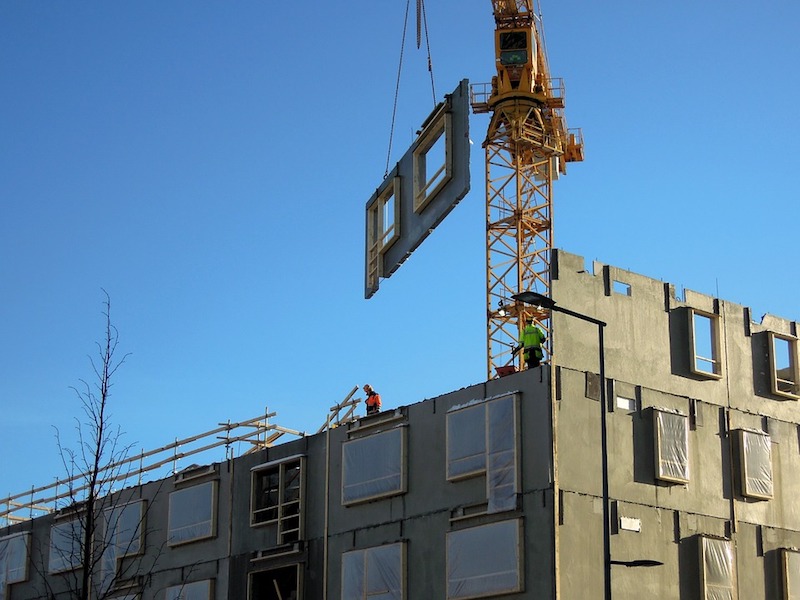The New York City Department of Preservation and Housing recently issued its first request for proposals under its Housing 2.0 modular construction initiative.
The RFP is for a new mixed-use affordable housing project on city-owned 49,397 sf site in Brooklyn. Using modular construction will allow the department to reduce construction costs, get housing built faster, and respond more quickly to demographic shifts, officials contend.
The use of modular construction for affordable housing initiatives has gained support in recent years, despite a lack of modular manufacturers in the New York metro area and logistical challenges that come with delivering and storing large modular pieces.
Deputy Mayor Alicia Glen said the goal of the program was to master mid-rise, modular multifamily development to help meet the city’s increased affordable housing goals, according to a report in The Real Deal. The city aims to create or preserve 300,000 residential units by 2026.
Related Stories
Codes and Standards | Jul 29, 2022
Few projects and properties are being built beyond code
Clients and architects disagree on how well building to code provides resilience, according to a recent report by the American Institute of Architects (AIA) in partnership with Owens Corning.
Multifamily Housing | Jul 28, 2022
GM working to make EV charging accessible to multifamily residents
General Motors, envisioning a future where electric vehicles will be commonplace, is working to boost charging infrastructure for those who live in multifamily residences.
Codes and Standards | Jul 27, 2022
Biden administration proposes drastic flood insurance reform
The Biden administration’s proposed major overhaul to the National Flood Insurance Program, or NFIP, would drastically alter how Americans protect homes and businesses against flooding.
Codes and Standards | Jul 22, 2022
Office developers aim for zero carbon without offsets
As companies reassess their office needs in the wake of the pandemic, a new arms race to deliver net zero carbon space without the need for offsets is taking place in London, according to a recent Bloomberg report.
Codes and Standards | Jul 22, 2022
Hurricane-resistant construction may be greatly undervalued
New research led by an MIT graduate student at the school’s Concrete Sustainability Hub suggests that the value of buildings constructed to resist wind damage in hurricanes may be significantly underestimated.
Building Team | Jul 20, 2022
San Francisco overtakes Tokyo as the world’s most expensive city for construction
San Francisco has overtaken Tokyo as the world’s most expensive city for construction, according to a new report from Turner & Townsend.
Airports | Jul 18, 2022
FAA will award nearly $1 billion for airport projects
The Federal Aviation Administration (FAA) will award nearly $1 billion to 85 airports of all sizes across the country to improve terminals.
Building Team | Jul 13, 2022
The YIMBY movement emerges as valuable advocate for affordable housing
Over the past few decades, developers grew accustomed to nothing but staunch opposition to dense affordable housing project proposals.
Codes and Standards | Jul 12, 2022
USGBC sets out principles for LEED’s future
The U.S. Green Building Council recently published a report containing principles outlining how LEED will evolve.
Codes and Standards | Jul 8, 2022
Inefficient supply chains, outdated project delivery systems hamper construction investment
Constructing and justifying the cost of physical assets such as a manufacturing plant is much more difficult than it was decades ago, according to a report by Steffen Fuchs, senior partner with McKinsey & Company.

















